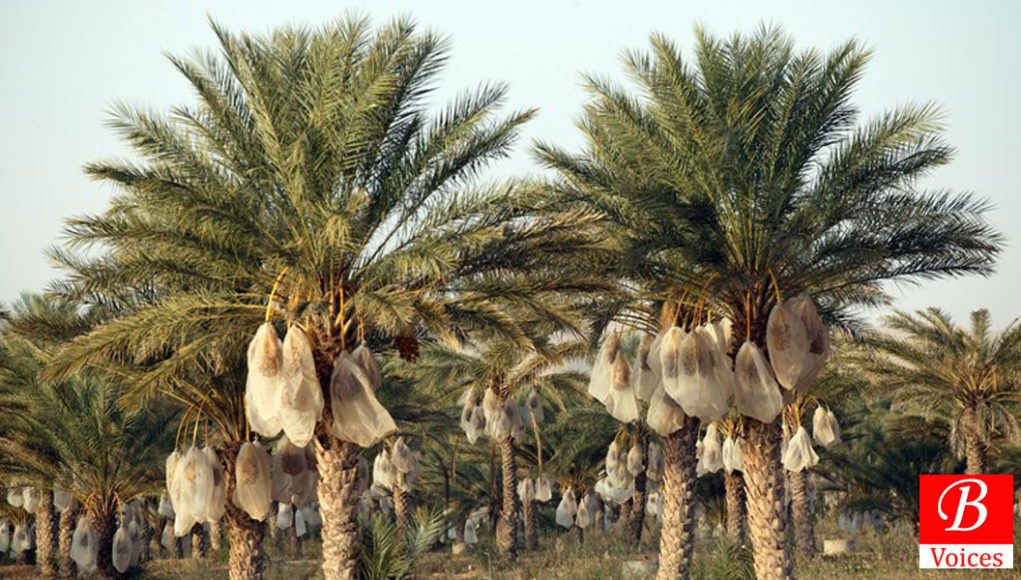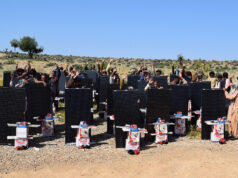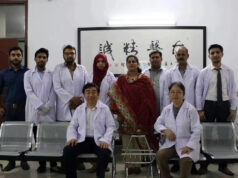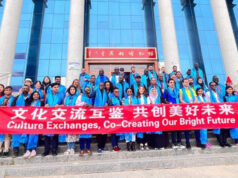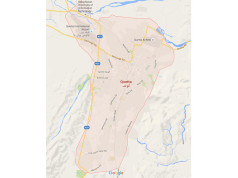 Mahfooz Ali Khan
Mahfooz Ali Khan
Balochistan has the largest production of dates in the country, and annually 51% of the dates produced in Pakistan come from Panjgur and Turbat districts.
Panjgur a district in Makran region bordering Iran, is situated in the south of Balochistan. It is home to beautiful date trees and is an exporter of the largest variety of indigenous dates variety from the region. Panjgur is a remote area with limited processing and storage facility for the dates. Date production is spread out over an area of about 20,000 hectares and is one of the main cash crop for 70 percent of the population. In dates, Mozawti variety is indigenous to Balochistan, and most of its production is from Panjgur district. Mozawti is best suited as table date due to its physical appearance, rich nutritional benefits and high demand from national and international consumers.
Many industrial date processors also procure Begam Jangi variety dates from Balochistan, which they process and supply to the export markets.
Partnership Solution:
Baloch Hamza Brothers Dates Company is an indigenous farm and has a vision to export gridded dates through its operational two separate tables and crushed date processing facilities for men and female workers. Baloch Hamza Brothers Dates Company started working in 2009 with a capital of PKR 20 million from dates of it is own farms. MDF enhanced Baloch Hamza Brothers Dates Company capacity by setting up curing machine which includes drying, washing and vibrating, elevator machine, reefer containers, grading tables, conveyer, packaging and pitting machines, to process more orders to cater to the growing domestic market. Now the company processes and packs dates of different varieties. MDF’s support will ensure that Baloch Hamza Brothers Dates company will increase its processing capacity and reduce its post-harvest losses and create linkages with the growing dates’ market. Different variety dates are washed, dried, pitted and crushed by the women worked in the women facility.
Due to the high cost associated with transporting of unprocessed dates, there are limited profit margins for local traders who could procure and sell to other urban national markets at a premium price. Therefore, before selling dates to Baloch Hamza Company, the Panjgur traders would sell their produce to other local traders, who would then mostly take it to Iran. These dates were then processed and then either sold back to Pakistan and other international markets at a much higher price.
Baloch Hamza Brothers Dates Company now meets the high demand for dates of niche national and international markets, through domestic traders and through direct linkages with international buyers.
The company procures good quality dates directly from the farmers and pays them in cash at the farm, usually at a premium of about five Rs. per kg more than what the middle man offers to the farmer. After making additional investment from the Baloch Hamza Company, the farmers are now able to sell dates at the farm and receive higher incomes.
With the help of different foreign funded projects and partnership with Baloch Hamza has enabled it to establish a modern technology based processing facility and procurement system to reduce post-harvest losses through provision of plastic crates to the farmers at the farm gate. The Baloch Hamza Facility which is now operational has increased capacity for washing, drying and packing of processed table dates of different varieties, particularly for Mozawti, Juwansour and Karaba. In 2016, 90 percent of the Mozawati dates variety was procured at the highest price of the local market rate, when plastic crates were used.
The effective post-harvest practices introduced by Baloch Hamza Brothers Date Company such as the use of feasible size plastic crates have helped farmers supply a greater quantity of good quality dates to the company at a much higher price at the farm. Before using of plastic crates farmers used wooden crates and paper boxes, resulting higher quantities of pressed dates and broken skin hence increase post-harvest losses. The farmers bear significant loss on sale. Baloch Hamza Brothers Date Company was also not getting the desired quantity of desired quality dates, therefore he introduced, purchased and provided small size plastic crates to farmers to provide dates. Based on estimated post-harvest losses of 30 percent, as a result of using the plastic crates farmers have reduced post-harvest losses by more than 85 percent. Because they are able to supply good shelf life dates to company and get higher prices.
Other regional traders and buyers are also now offering higher prices at the farm, due to the increased competition with the Baloch Hamza Company. Therefore, farmers who are selling to other traders are also experiencing an increase in their annual incomes.
Due to its scattered population, conservative norms and non-availability of local transportation in Panjgur, it is difficult for females to commute for commercial dates production. Having public jobs is considered the most viable option for females in the area. Women are also involved in taking care of the livestock, working in agriculture or stitching clothes for a livelihood.
In this scenario, Baloch Hamza company is proving to be a change agent in Balochistan, as it has hired nine female employees for processing table and grinded dates. Baloch Hamza company has also hired a female supervisor for providing guidance to the female workers in the processing and packaging of dates at facility. The owner of the company also constructed a separate facility for females, near his house in Tasp area of Panjgur district. In this way, females can commute easily and work flexible hours and invest in the wellbeing of their families. During the harvesting period of dates at the farm level, the female supervisor of the facility along with also female workers of the facility go to the farms and provide guidance and help female household members of the farmers in harvesting, sorting and packing of unprocessed dates at the farm gate in retail packaging.
The long chain between the farmers and final buyers decreases the prospects of earning higher incomes from the dates for the farmers. Through increased investments in processing, the farmers are able to sell more quantities to Baloch Hamza Brothers Dates Company at the farm level and receive higher incomes Before the Baloch Hamza Company, the local farmers were selling the Muzawti dates for 40-60 Rs. per kg. But now after foreign assistance with Baloch Hamza, the farmers are now able to sell Muzawti for 120 Rs. per kg, within duration of three years. In 2016, a few commission agents who procured dates from the local farmers in Balochistan from traders based in Karachi, also offered to pay more than 120 Rs. per kg for the dates, while in the past they used to purchase the dates for 50-60 Rs. per kg.
There have also been other positive developments in Balochistan. The province has also faced one of its longest drought spells in the country, and the ground water is also decreasing day by day in the northern part of it.
However, in the South, Panjgur district has the required levels of ground water, and the farmers who are able to earn a good amount from date farming, are now investing in increasing their irrigation capacity and installing tube-wells in the area. There is also no electricity in the Parume area of Panjgur, and now local farmers are considering investing on solar panels to run the tube-wells.
Disclaimer: Views expressed in this article are those of the author and Balochistan Voices not necessarily agrees with them.
Share your comments!


